
For World Veterinary Day tomorrow (27 April) we pay tribute to our veterinarians, whether at the ADI Wildlife Sanctuary (ADIWS) in South Africa, or active on our large-scale circus rescues in the field at the Temporary Rescue Units, or in sanctuaries we support, or providing help during natural disasters, we salute the ADI veterinary teams around the world – Inés Nole and Eva Chomba from Peru, Dr Gustavo Gonzales from Guatemala, Camilo Uribe, Colombia, Dr Howard Rosner, US and Dr Peter Caldwell and Prof. Gerhard Steenkamp in South Africa, including all their teams and students.

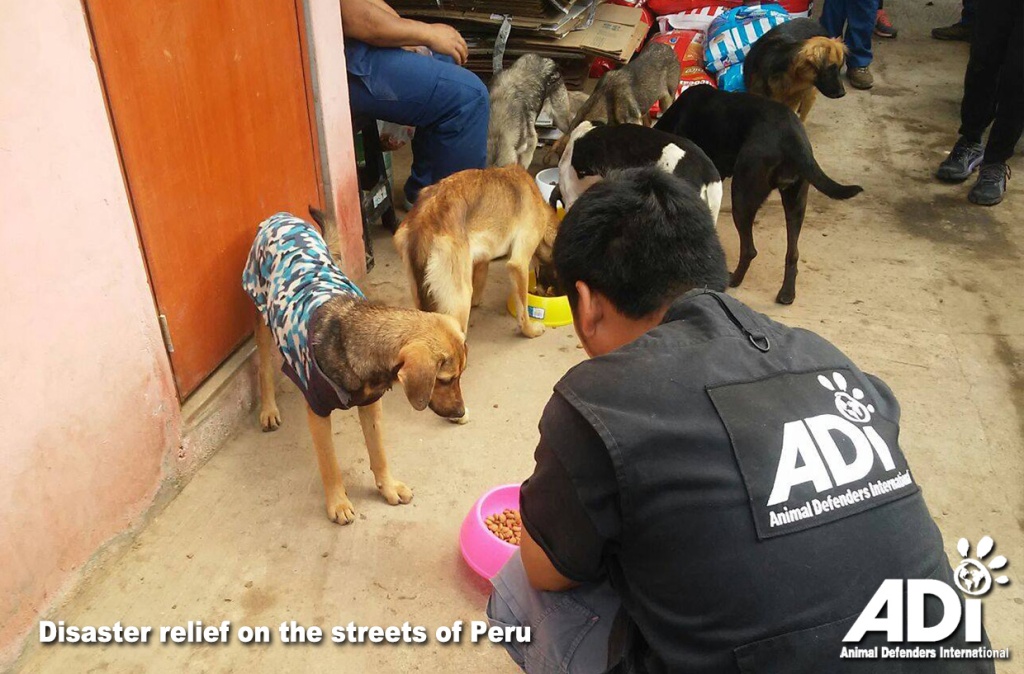
Many of the animals we save have endured a lifetime of deprivation, malnutrition, and confinement in small, unnatural spaces, often living in constant fear. Tiger sisters Luna and Jade, rescued from a circus in Guatemala, both have a malformed skull and spine connection which impacts the spinal nerve, causing them to walk with a ‘goose step’ gait, for which we provide essential vitamin supplements and medications to reduce the damage. Our beloved Ruben’s body was ravaged by a lifetime of malnutrition from poor food, severe confinement and lack of exercise to develop his body, causing damage to his spine and degenerative neuropathy which ultimately claimed his life.
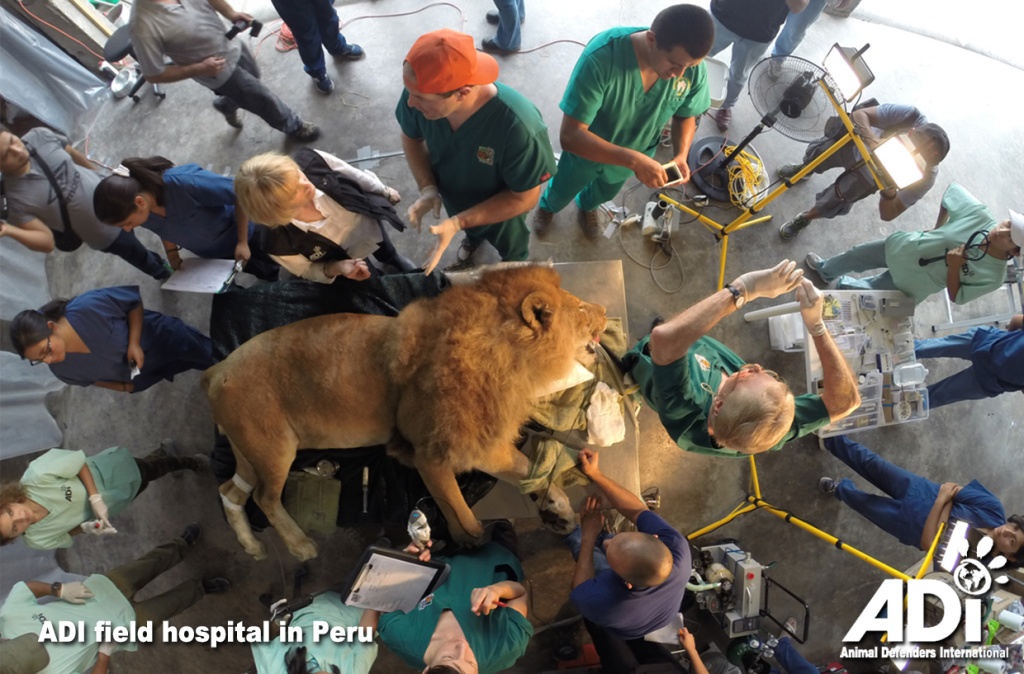
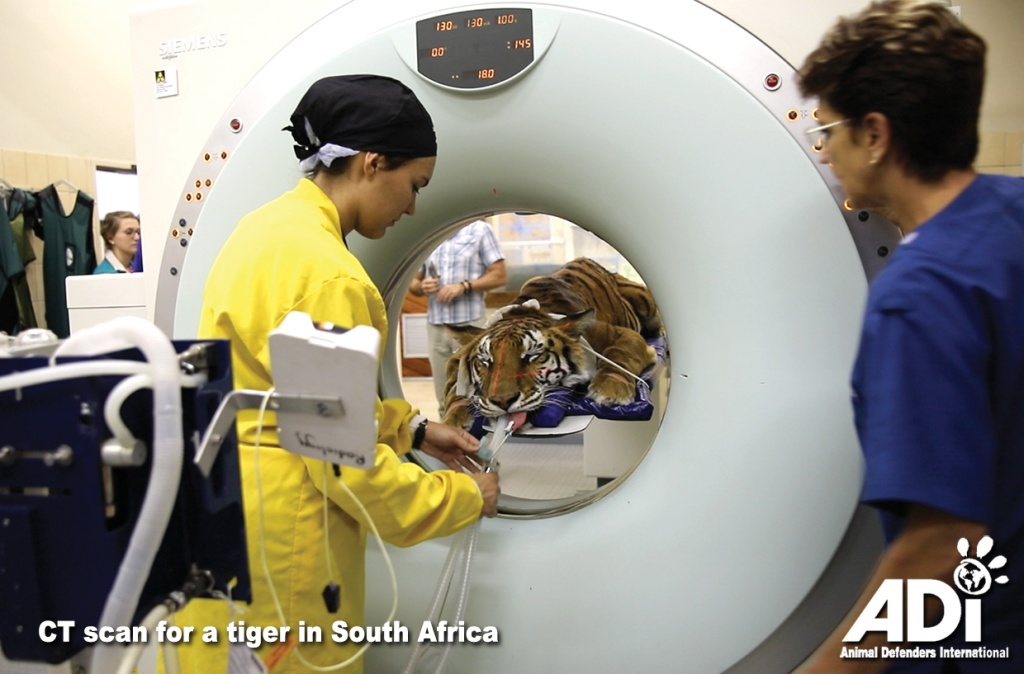
Early life malnutrition also leads to eye problems. Several of our lions have been rescued with cataracts, blindness, or sometimes with an eye already removed; eventually, advanced cataracts cause pain and inflammation with removal of the eye being the only option – this included Ricardo, Joseph, Amazonas, Kiara Cusco, Leo, and Smith.
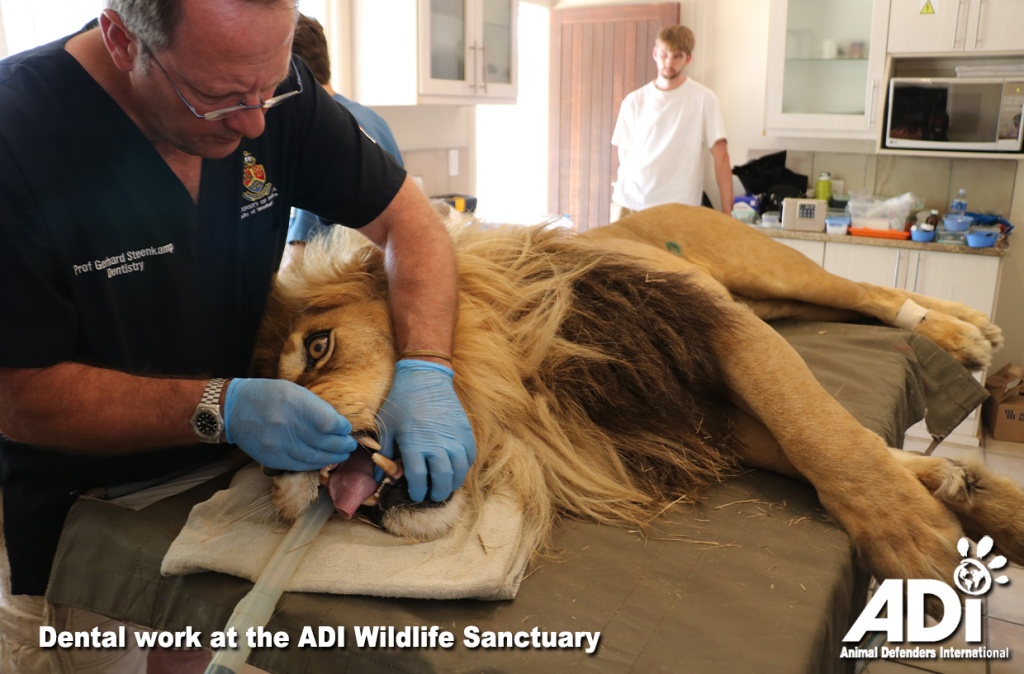
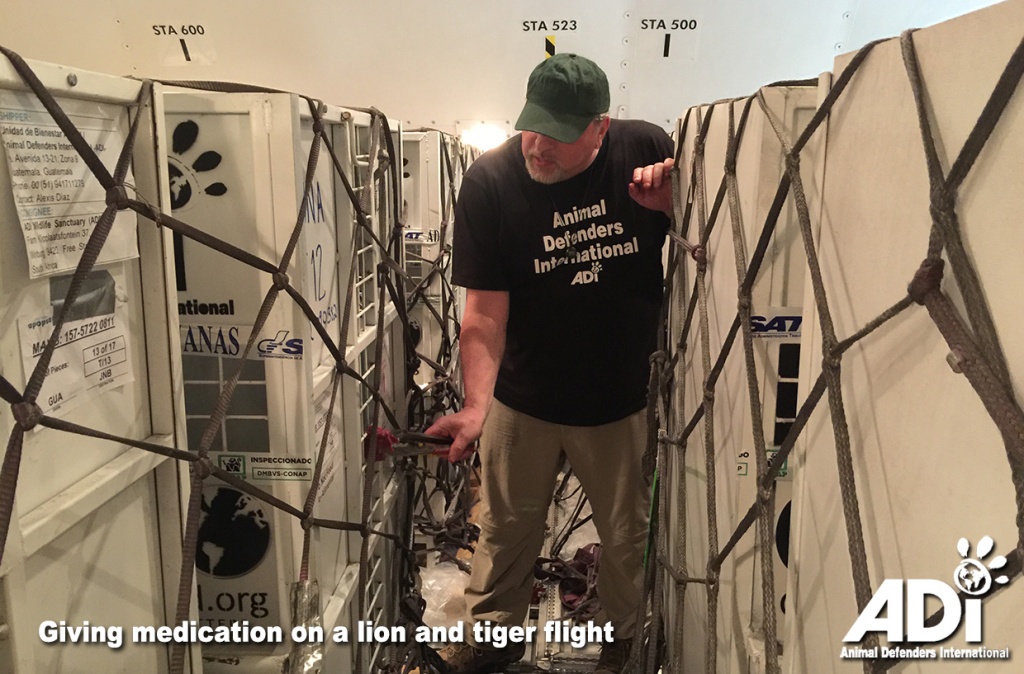
Lions and tigers invariably arrive with severe dental problems and gum disease due to their teeth being smashed when hit in the face by iron bars. Monkeys commonly arrive with teeth broken off to prevent them biting the ‘brave’ trainer who forces them to do tricks. This leaves them with infected stumps and gum disease which can infect the jaw. One of our regular tasks once we have rescued our circus and wildlife trade survivors, is dentistry sessions for root canals and extractions.


Circus workers pretend bravery when entering the ring with a lion, tiger, or bear, but what the audience does not know, is that circuses have brutally cut off the animals’ toes to permanently remove their claws – depriving them of their main defence against abuse. The pictures of our late bear, Cholita, show her missing digits cut off both front paws by the circus in Peru. They also broke off her teeth.


Cutting off an animal’s toes has the same effect as cutting off a person’s fingers – they lose the ability to manipulate things, scratch, play, and hunt. The damage to the feet of the big cats can be seen over time as the foot collapses, causing painful feet. Sasha lioness, who we rescued from a circus in Guatemala had suffered a toe being crushed rather than cut off during a declawing operation when she was just a cub. The pain and damage caused a limp which lasted all her life and the infection eventually led to cancer which travelled up her leg. ADIWS veterinarian Peter Caldwell performed ground-breaking surgery when Sasha got to South Africa, replacing the diseased bone with a titanium implant. Sasha will always limp, because the tendons in her leg were not stretched as she grew due to the injury. Now, following her surgery, she is gradually putting her foot on the ground, helping to improve her movement. And of course, she is no longer in pain.


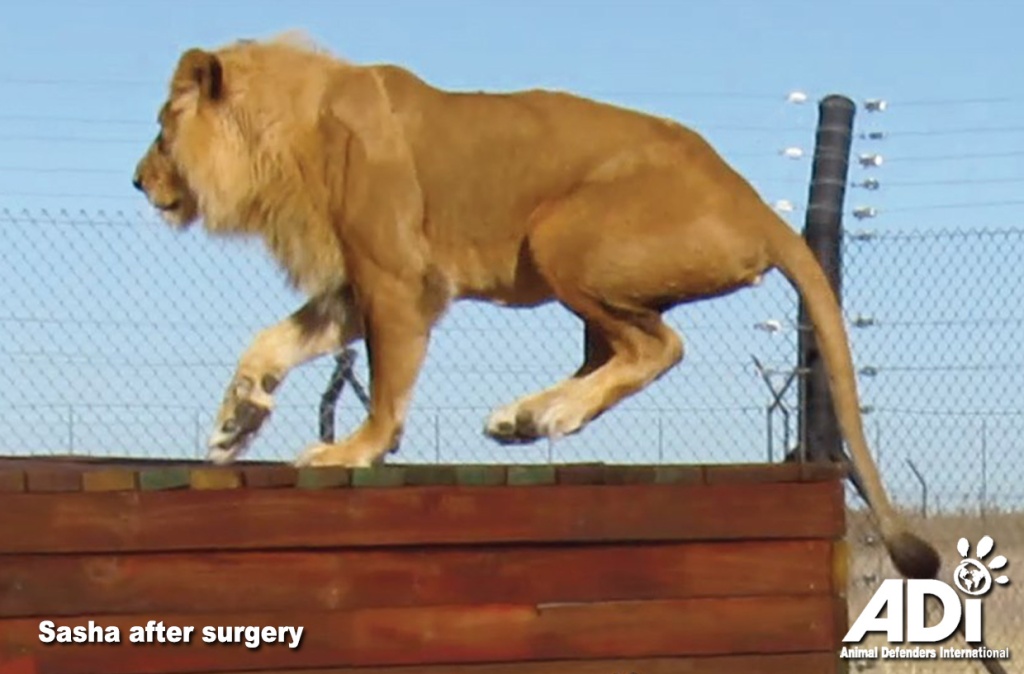
As well as providing a place of loving kindness, with natural habitats, routine enrichment, and neighbours of their own kind, the ADIWS provides the care our residents need for life, however long that may be.
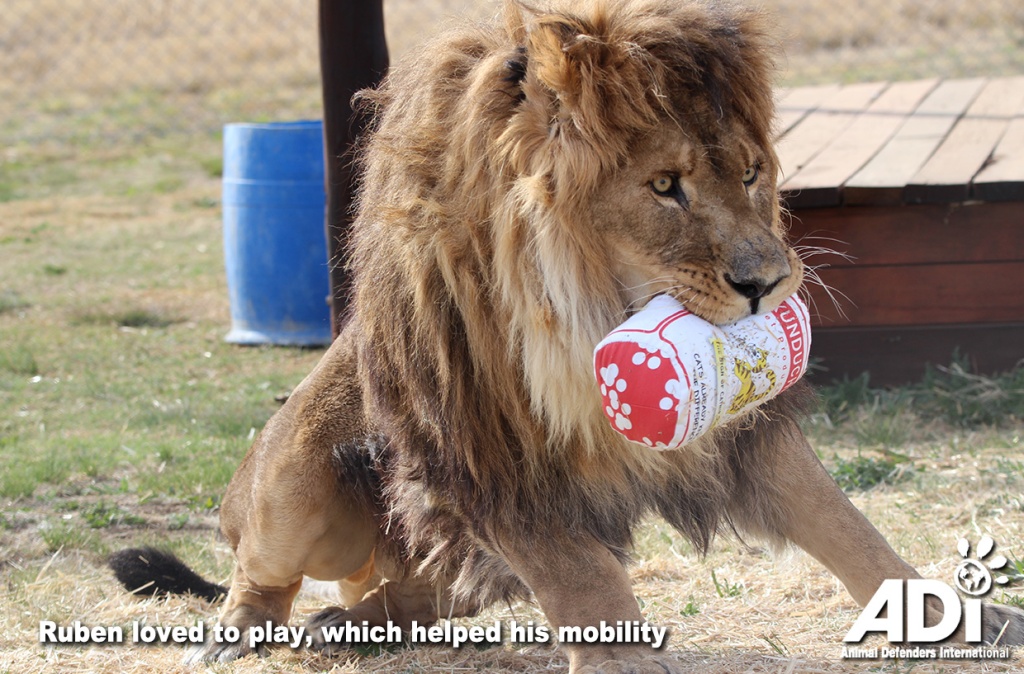
Recently, before Ruben passed away, we were in the process of building a gantry on his house so that a hoist could be used to give him physiotherapy, and an inner enclosure for giving medications. The house already had a non-slip heated floor, and the feeding camp and main habitat were designed around his physical needs with slopes and lower platforms. We will complete this work, so we have a special needs habitat ready at any time. Despite the heartbreak of losing Ruben after 7 precious months we will not turn away from animals with health challenges in future. Our intensive care habitat will honour Ruben.
We have seen how we can transform the life experience of our rescued residents, as they become themselves again, so we will always work to provide for their physical and mental needs.

In due course, we hope to convert part of our large barn into the J. Jarie Jensen Veterinary Center and have veterinary facilities right on the Sanctuary. This and other infrastructure plans had been paused due to the drop in income we suffer as a result of the pandemic and ongoing economic problems.
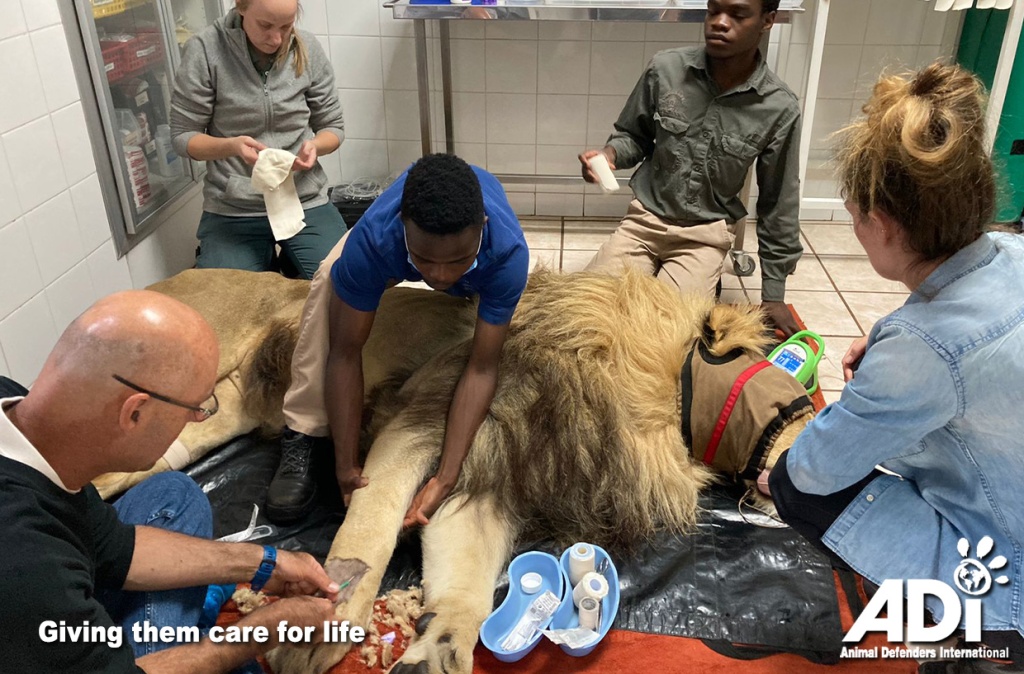
To help us give our rescued lions and tigers the best life possible, despite the health obstacles they face, please donate UK £ / US $.
